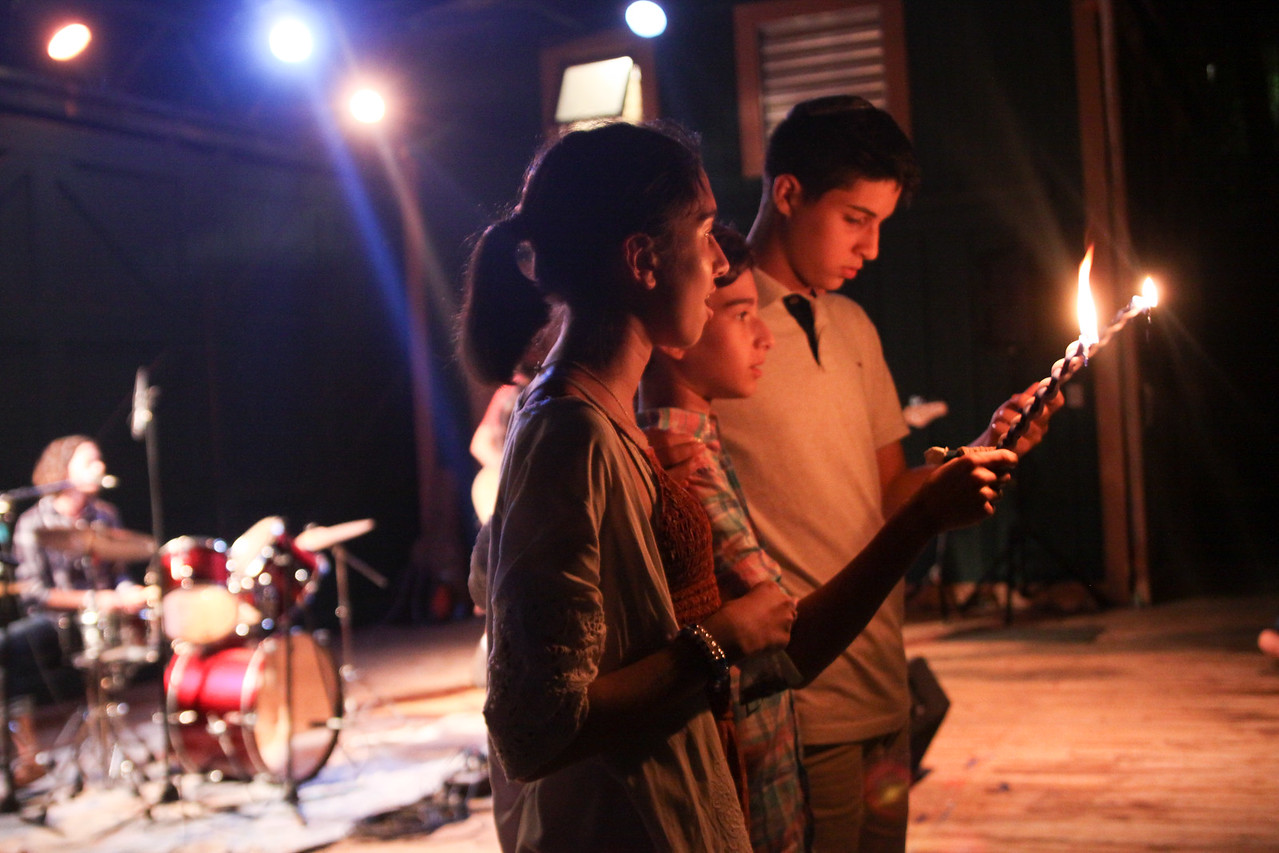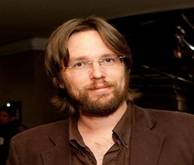
A few years ago, Jessica and I took the girls to Disney World. I guess that we can all agree on the fact that Disney World represents an illusion, right? Well, with that in mind, we decided to make the trip because we knew that our three daughters would still believe in magic; that they would still enjoy a trick without knowing it was a trick.
However, while certain illusions can briefly make us feel blissful and safe, it is not clear to me whether we should hang on to the illusion while it lasts, or whether we should avoid spending too much of our time building castles in the air. That is why this summer we did not go to Florida. Instead, we went to northern Georgia, where I had the chance to teach for two weeks at Ramah Darom, and the girls had the chance to enjoy a different type of experience, one as a full camper at Taste and the other two as day campers at Gan.
Ramah Darom is not Disney World but Camp has something a bit surreal as well. At Darom, we found 400 Conservative Jews under the age of 18 wrapping tefillin, eating kosher and studying Torah for an entire month (or two!) without kvetching. Mind-blowing, wouldn’t you say? If you multiply those 400 kids by the number of Camp Ramah’s around the country, the result is not just promising but inspiring.
I want to share with you three main takeaways from my trip to Ramah Darom this summer. Each one of the takeaways is related to a specific vignette; to a specific situation that you can see at Camp. From these vignettes of this real/unreal world, I think there is much to be learned.
1. Keeping the Balance
The first vignette carries the title of “Keeping the balance,” and is about paddle boarding at Camp. Ramah Darom has an amazing artificial lake. In that lake, you can jump over the “blob,” you can row using a boat or a kayak, or you can take paddle-boarding lessons with Adina Barocas (a great member of my shul). An important lesson you need to know about paddleboarding is that you must keep your balance if you don’t want to end up swimming in the lake.
Keeping the balance is probably the most difficult and, at the same time, the most important job in our lives. Keeping the balance involves our ability to balance time between work and leisure, time for family and friends, and time for our partner and our kids. In an ever increasingly crazy world, when we find ourselves running all over the place to make our lives work, the image of someone floating on a board in the middle of the lake is one that helps me stop for a moment and ask myself which of my daily endeavors are worthy, and which ones are a detriment to my sense of inner balance in the long run.
2. Lessons from the Paleolithic
If the first vignette was “Keeping the Balance,” the second one is “Lessons from the Paleolithic.” And, it is related to the Oneg. Let me explain. At Ramah Darom, campers do not have much access to candy, sodas and the like. In that context, every visitor can make a huge difference. So, if I wanted to remain a positive Rabbinic figure among the kids, we had to provide a significant Oneg for everyone to enjoy during Shabbat. And, thank G-d, we were able to succeed at that. When we were preparing the table with different treats for our campers, a few unknown teens appeared at the scene. For me, it was an awkward situation, because it is not very rabbinic-like to scare away non-Nashvillian Jewish campers, but extending a polite invitation to them wasn’t needed either. Our own kids decided to gather around the food, and they kept out every outsider. For me, it was a flashback to the Paleolithic period, where the first humans on Earth started to gather and form groups.
If balance is a fundamental feature of a healthy self, belonging to a particular group comes in as a close second. Even in an era that praises individualism and celebrates the autonomy of the self, the flashback to our origins as human beings reminds us of our thirst for meaningful belongings and our desire to be part of profound interpersonal relationships. In the tension that goes from the exclusive self to an interest in the wellbeing of humankind, the first step needs to be related to strengthening the core group – the extended family – that gives us a sense of affiliation and identity from where to look, from where to understand and from where to repair this broken world. As Rabbi Mordecai Kaplan used to say: “Cosmopolitanism is likely to be an alibi for not doing one’s duty to one’s own people.” (As a side note: at the end, the group made room for those “outsiders” willing to partake of the Oneg… evolution is a beautiful thing, right?)
3. Tears of Joy
The last vignette I want to share with you about what happened during Havdallah, and its title is “Tears of Joy.” Overall, Camp was great, but Havdallah was, by far, the jewel in the crown. At the end of Shabbat, the lights went off, the music began, and everyone sang the first lines of the Havdallah ceremony. I’ve seen this before and, yet, it continued to be profoundly moving to me. I was unable to stop my tears from coming. I’m not very easily moved, and those who know me well know that I don’t usually cry. However, during Havdallah at Ramah, the tears were unavoidable. And, that was OK. Because those were great tears; those were tears of joy. I felt the blessing of being surrounded by teens who were experiencing their Judaism not from guilt, but from happiness, and not from a sense of duty, but from their personal willingness to embody a wonderful and meaningful tradition in their lives.
The type of Judaism that I experienced at Ramah remains both a real and an unreal universe; a feasible world that still seems to elude us once we leave northern Georgia. So, I want to invite you to partake in the challenge of working for a meaningful Judaism that will not be just for teens but for everyone, and will not be just for the summer, but for all year long.
Rabbi Joshua Kullock
West End Synagogue
Nashville, Tennessee
